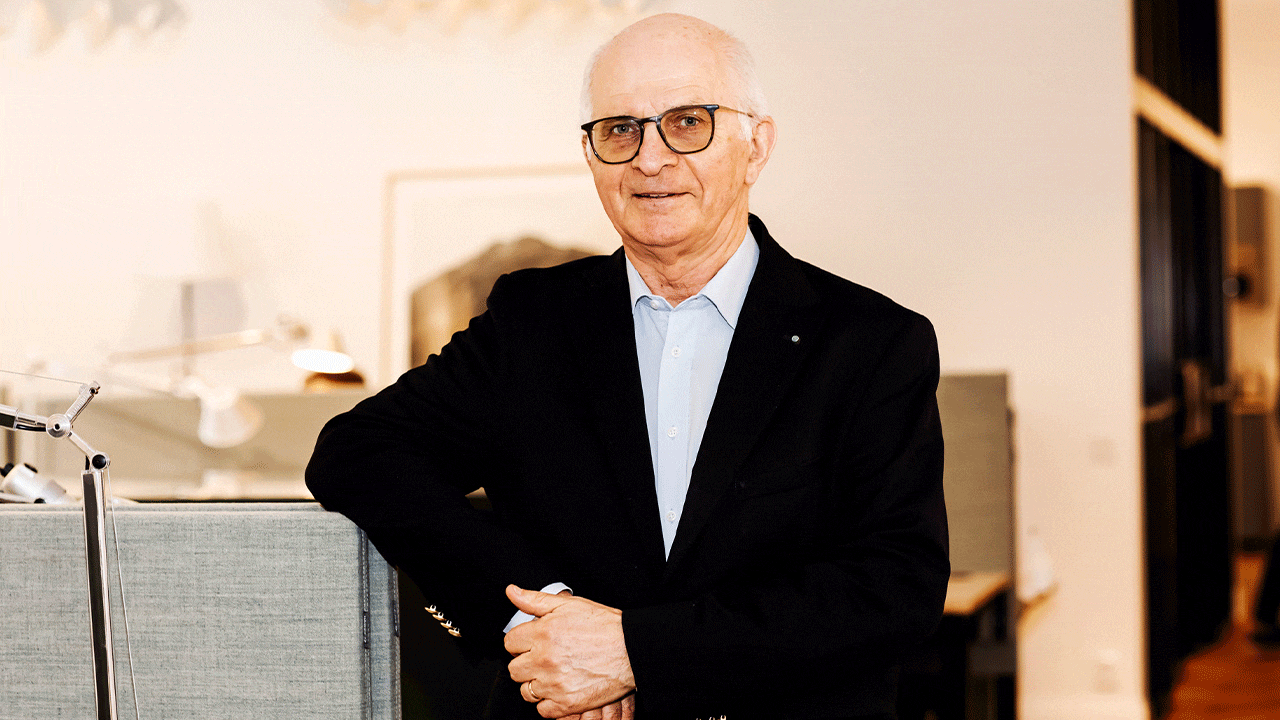“The time has finally come for wave power, but also that time is of the essence. We must be bold, ‘think big’ and accelerate these efforts, learning from other industries such as the battery and storage sector to capitalise on true innovation.”
1.Can you provide a short introduction?
My background lies in the electric power sector with a focus on global business strategy, including grids as an enabler for renewable energy. Over the last 10 years I have been working in Europe with a mission to drive renewable energy activity, supporting governmental initiatives. As a member of the Royal Academy of Engineering Sciences, I have developed roadmaps for Sweden’s future electricity system. A recent highlight includes taking the initiative for the European Battery Alliance outlining a strategy for developing a competitive battery industry in Europe.
How do you summarise the future energy transition?
In short, the future energy transition will see movement away from fossil fuel use towards electrification. In order to achieve this, we will need to accelerate current levels of electricity in the system from below 20% to more than 50%. This transformation will involve several cornerstones including increased efficiency, decarbonization, electrification, digitalization and behavioural changes.
These elements tend to work hand in hand, for example electrification drives increased efficiency and decarbonization through innovations like electric cars which are 3-5 times more efficient. Elsewhere, digitalization makes it possible to optimize flows, for example in traffic, but also transformational changes are required in areas like the ‘sharing economy’ elements of which have proliferated throughout the pandemic like online meetings.
‘The future energy transition will involve several cornerstones including increased efficiency, decarbonization, electrification, digitalisation and behavioural changes.”
What are the biggest challenges for the energy transition?
Historically, the biggest challenge has been awareness, but this is about to change. While we are not witnessing much greater international consensus, we must still realize the transformation will bring fundamental changes creating both winners and losers. This raises the debate around energy equality. Another challenge revolves around skills. A good example of this is the automotive sector which is experiencing a major shift in skill requirements. Naturally, another challenge concerns the availability of capital, especially for developing countries, which was well documented at the recent COP26 negotiations in Glasgow.
Separately, we must ensure continued development of emerging technologies. I object to those claiming that we already have all technologies. It is correct that we have developed technology which is propelling us in the right direction but not all are satisfactory to complete the journey. In this sense, we need to support emerging technologies in early stages of development. The positive news is that we are now witnessing an increase in finance and contributions to support the renewable arena.
“We must ensure continued development of emerging technologies. It is correct that we have developed technology which is propelling us in the right direction but not all are satisfactory to complete the journey. In this sense, we need to support emerging technologies in early stages of development.”
What needs to happen on a system level?
The power system will face fundamental challenges throughout the future energy transition. In order to localise production and consumption we need more grids and a relocation of industrial sites. In addition, to address the variability of renewable energy production we must consider its geographic distribution and storage, adopting more intelligent solutions while harnessing the full benefit of new and emerging sources of renewable production like wave power. In addition, we must further consider ‘sector coupling’ for example combined progression for both transport and industry.
What value do you foresee in wave energy? What chances do you see for CorPower to succeed and why?
Wave energy can offer significant value to the global energy system due to its high productivity and consistent power profile. Importantly, wave energy can also act as a complementary partner to other more established renewable energy sources, such as wind and solar, which are more intermittent by nature – essentially providing greater stability to the grid. For CorPower specifically, this is excellent timing. Having addressed the historical and fundamental drawbacks of wave power, revolving around robustness and cost, the firm has passed my initial contention of how much material is needed per kW and kWh. CorPower has further addressed the efficiency factor by capturing a higher portion of the wave energy – equivalent to a solar cell with double efficiency. Finally, CorPower is set to achieve economy of volume and does not need to scale to bigger units to become economically viable. The time has finally come for wave power but also that time is of the essence. We must be bold, ‘think big’ and accelerate these efforts, learning from other industries such as the battery and storage sector and capitalise on true innovation.
“For CorPower specifically, its timing is excellent. Having addressed the historical and fundamental drawbacks of wave power, revolving around robustness and cost, the firm has passed my initial contention of how much material is needed per kW and kWh.”
Any other predictions for the future?
I believe electrification will accelerate much faster, impacting more sectors than previously anticipated. In Sweden for example, new technologies are rapidly coming into commercial use, with commercial electric planes taking off before high-speed trains. We are likely to see electrification with heat pumps replacing fossil fuels and gas across Europe. Meanwhile, industrial sectors such as steel and cement will be electrified and Europe as a whole will see a much higher demand for electricity, just as we have discovered in Sweden.
Name: Bo Normark
Job Title: Industrial Strategy Executive at EIT InnoEnergy
Career in summary: Bo Normark is a pivotal figure in the field of energy storage. Having served in the electrical engineering industry working for ABB for nearly 40 years, Normark became Thematic Leader for smart grids and storage at EIT InnoEnergy, before settling into his current role as Industrial Strategy Executive, and being the mind behind the EBA, the European Battery Alliance. As a member of numerous leadership boards and advisory roles, both in his native Sweden and abroad, from the Royal Swedish Academy of Engineering Sciences to the Renewable Energy Institute of Japan, Bo looks to not only inspire innovation, but actually transform the industry and achieve a sustainable energy future for Europe, and turn ideas into reality. In November 2021 Bo was appointed Honorary Doctor at KTH Royal University of Technology, Stockholm.

